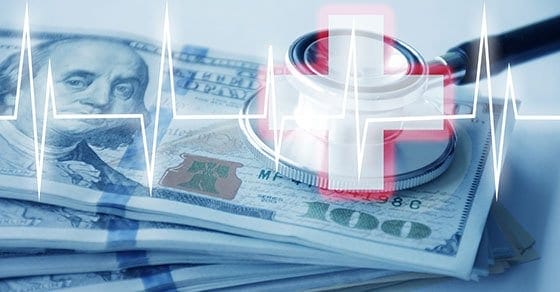Remote Therapeutic Monitoring (RTM) has emerged as a pivotal component in modern healthcare, leveraging technology to enhance patient care and engagement, particularly in managing chronic conditions and rehabilitative therapies. As RTM becomes more integral to patient care, understanding who can bill for these services is crucial for healthcare providers looking to implement this technology into their practice. This blog will explore the various healthcare professionals who can bill for RTM, the billing codes involved, and the criteria that must be met to ensure compliance and reimbursement.
Understanding Remote Therapeutic Monitoring
RTM involves the use of digital tools to monitor patients’ adherence to therapeutic regimens, track their progress, and collect data on functional outcomes. This can include monitoring medication adherence, physical therapy exercises, respiratory function, and other therapeutic activities. The data collected is used to make informed decisions about the patient's treatment plan and to engage patients more actively in their own care.
Billing for RTM: Eligible Providers
The Centers for Medicare & Medicaid Services (CMS) have established guidelines for billing RTM services. As of 2024, the following healthcare professionals can bill for RTM services:
- Physicians
- Medical doctors (MDs) and doctors of osteopathy (DOs) who manage and oversee patients' therapeutic regimens can bill for RTM. These physicians typically oversee chronic conditions and prescribe therapeutic interventions that are tracked using RTM.
- Non-Physician Practitioners (NPPs)
- Nurse Practitioners (NPs), Physician Assistants (PAs), and Clinical Nurse Specialists (CNSs) are also eligible to bill for RTM. These practitioners often work collaboratively with physicians and play a crucial role in patient management and care coordination.
- Physical Therapists (PTs)
- Given RTM’s significant application in physical therapy, licensed physical therapists can bill for RTM services. PTs often use RTM to monitor patients' adherence to prescribed exercise regimens and track their progress in rehabilitation.
- Occupational Therapists (OTs)
- Occupational therapists, who focus on helping patients regain skills necessary for daily living and working, can also bill for RTM. They use RTM to monitor the effectiveness of therapeutic interventions and ensure that patients are following their treatment plans.
- Speech-Language Pathologists (SLPs)
- SLPs, who specialize in treating speech, language, and swallowing disorders, can bill for RTM. They use RTM to monitor patients’ progress and adherence to therapy exercises designed to improve communication and swallowing functions.
Billing Codes for RTM
CMS has established specific billing codes for RTM services, which providers must use to ensure proper reimbursement. These codes are part of the Current Procedural Terminology (CPT) system. As of 2024, the key RTM billing codes include:
- CPT Code 98975
- Description: Initial setup and patient education on use of equipment.
- Eligibility: Can be billed once per episode of care for each patient.
- CPT Code 98976
- Description: Device supply with daily recording or programmed alert transmissions for respiratory system monitoring, each 30 days.
- Eligibility: Can be billed once per 30-day period.
- CPT Code 98977
- Description: Device supply with daily recording or programmed alert transmissions for musculoskeletal system monitoring, each 30 days.
- Eligibility: Can be billed once per 30-day period.
- CPT Code 98980
- Description: Remote therapeutic monitoring treatment management services, 20 minutes or more of clinical staff/physician/other qualified healthcare professional time in a calendar month.
- Eligibility: Can be billed once per calendar month for 20 minutes or more of care management services.
- CPT Code 98981
- Description: Each additional 20 minutes of remote therapeutic monitoring treatment management services.
- Eligibility: Can be billed in conjunction with 98980 for each additional 20-minute increment of care management services provided.
Criteria for Billing RTM
To ensure compliance and proper reimbursement, healthcare providers must meet certain criteria when billing for RTM services:
- Medical Necessity
- The use of RTM must be medically necessary for the patient's condition. Providers should document the need for remote monitoring and how it benefits the patient's treatment plan.
- Patient Consent
- Providers must obtain and document the patient’s consent for using RTM services. Patients should be informed about how the monitoring will be conducted and how their data will be used.
- Data Collection
- Patients must generate 16 unique days of readings in a 30-day period in order for providers to bill and be reimbursed for RTM services.
- Proper Documentation
- Accurate and detailed documentation is essential. Providers must record the time spent on RTM activities, the data collected, patient interactions, and any adjustments made to the treatment plan based on RTM data.
- Device and Technology Standards
- The devices and technology used for RTM must meet the standards set by CMS. Providers should ensure that the equipment is reliable, secure, and capable of collecting the necessary data.
- Qualified Healthcare Professionals
- Only eligible healthcare professionals (as listed above) can bill for RTM services. Providers must ensure that the services billed are within their scope of practice and licensure.
Conclusion
Remote Therapeutic Monitoring (RTM) offers a transformative approach to patient care, enhancing the management of chronic conditions and rehabilitative therapies through continuous monitoring and patient engagement. Understanding who can bill for RTM and adhering to the established guidelines and criteria is crucial for healthcare providers to successfully integrate RTM into their practice and receive appropriate reimbursement. As the healthcare landscape continues to evolve, RTM represents a significant step forward in delivering high-quality, patient-centered care.




